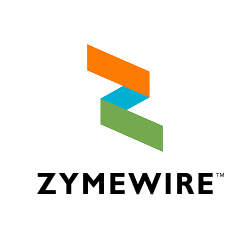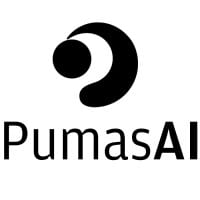Today, a brief rundown of news involving Medicare and the Food and Drug Administration, as well as updates from Ovid Therapeutics, Taysha Gene Therapies and Bolt Biotherapeutics that you may have missed.
Subcutaneous versions of cancer drugs Merck & Co.’s Keytruda and Bristol Myers Squibb’s Opdivo won’t be subject to Medicare price negotiations in 2028 as investors had feared, but could be in 2029, according to guidance from the Centers for Medicare and Medicaid Services. The policy in particular might have affected drugs that launched as intravenous infusions and were later converted into under-the-skin injections, subcutaneous shots through the use of technologies developed by Halozyme and others. In comments to the agency, some drug companies claimed CMS didn’t have the legal authority to group subcutaneous and intravenous products together, and that doing so might discourage drug research. “Due to the complexity and scope of this issue as noted above in stakeholder comments, CMS believes additional time would be necessary to develop objective policy criteria,” the agency wrote.— Jonathan Gardner
The FDA on Thursday approved a second generic version of the abortion pill mifepristone, sparking backlash from some conservative politicians and anti-abortion groups. An FDA letter shows the agency cleared privately held Evita Solutions’ form of the drug, which is one of two pills commonly used to terminate a pregnancy within the first trimester. The approval comes after HHS Secretary Robert F. Kennedy Jr and FDA Commissioner Martin Makary vowed last month to reevaluate the safety of mifepristone, which has been consistently proven safe in studies since its initial approval more than two decades ago. — Delilah Alvarado
Ovid Therapeutics, a New York-based biotechnology company, on Thursday said that its most advanced experimental drug succeeded in an early-stage study of healthy volunteers. The drug, "OV329," is designed to inhibit enzymes that break down "GABA," a neurotransmitter that calms brain cells. Ovid said multiple biomarker tests found treatment with OV329 resulted in "highly significant" enzyme inhibition, giving the company confidence to further study the medicine as a potential seizure therapy. Ovid also reported "favorable" safety data and "no evidence" of changes in participants' visual health. The biotech, which hit major setbacks with other drugs for epilepsies and a rare genetic disorder, saw its share price rise nearly 12% Thursday morning, to trade around $1.83. Alongside the study findings, Ovid disclosed it is conducting a "PIPE" financing that could be worth up to $175 million. — Jacob Bell
Cidara Therapeutics received a $339 million award from the Biomedical Advanced Research and Development Authority to support development of CD388, its preventive therapy for flu infections. Cidara posted positive mid-stage study results for the drug — a potential alternative to flu vaccines — in June, and its market value has more than quadrupled since. The BARDA award will help with onshore manufacturing and run additional studies that would support a U.S. approval submission. — Ben Fidler
Shares of Taysha Gene Therapies surged 50% on Thursday after the company aligned with the FDA on the design of a pivotal study evaluating its experimental treatment for the rare disease Rett syndrome. The single arm, open-label trial will include a six-month interim analysis that could enable a speedy approval submission if the results are positive, and a 33% response rate has been established as the "minimum threshold" for success, Taysha said. The update is a boost for Taysha as well as its Rett syndrome gene therapy rival Neurogene, as it shows "regulatory flexibility and a very achievable bar for success," wrote Leerink Partners analyst Mani Foroohar. Neurogene shares climbed by double digits as well. — Ben Fidler
Bolt Biotherapeutics is cutting its workforce in half for the second time in the last two years. The company was initially expecting data from a Phase 1 dose study of its cancer antibody drug, dubbed BDC-4182, in the first half of 2026. But it’s now evaluating a different dosing strategy, which is delaying the results to the third quarter and leading to a new restructuring that’ll extend its cash runway into 2027. Bolt previously laid off staff in 2024 when its then-lead drug didn’t meet its “high bar for advancement.” Bolt switched its focus to two earlier prospects, including BDC-4182. — Delilah Alvarado
Cirrus Therapeutics announced a $11 million seed financing round on Thursday that the company will use to bring a gene therapy for the “dry” form of age-related macular degeneration into preclinical testing. Cirrus’ treatment is designed to reverse a recently identified cause of dry AMD, the loss of an immune-regulating protein protein called IRAK-M. The seed round was led by ClavystBio, with participation from Polaris Partners and SEEDS. — Gwendolyn Wu
Correction: A previous version of this story misspelled the name of the company Neurogene.















